Crucial BX100 (120GB, 250GB, 500GB & 1TB) SSD Review
by Kristian Vättö on April 10, 2015 1:20 PM EST- Posted in
- Storage
- SSDs
- Crucial
- Micron
- Silicon Motion
- BX100
- SM2246EN
- Micron 16nm
Random Read Performance
For full details of how we conduct our Iometer tests, please refer to this article.
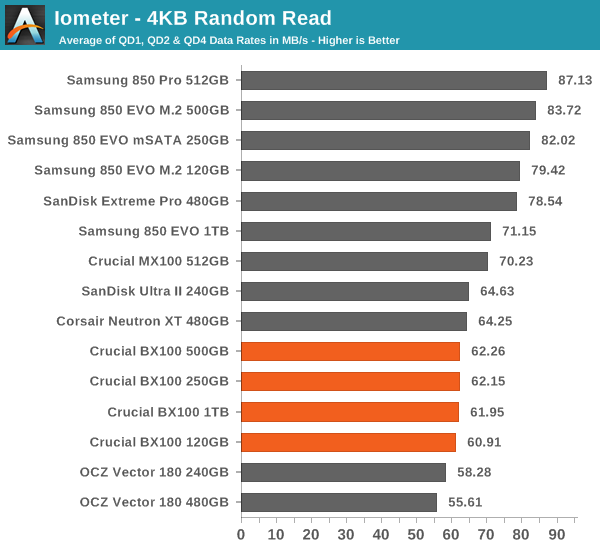
Random read performance at low queue depths is decent, but not class-leading. Similar to what we saw in the Storage Bench tests, only Samsung has a notable advantage over other manufacturers.
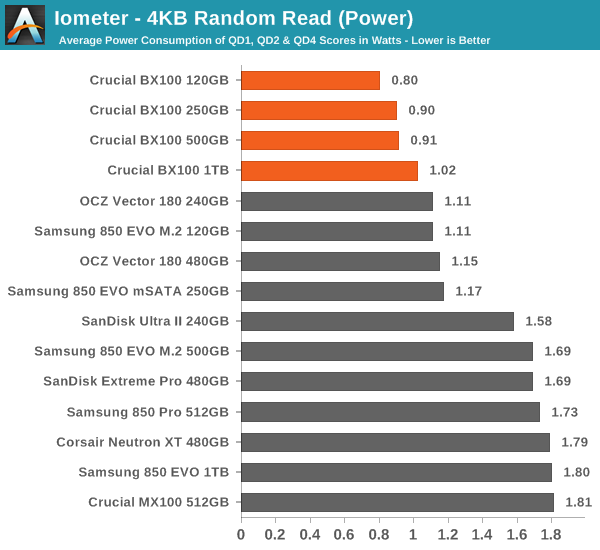
Power consumption, on the other hand, is outstanding as the BX100 is the most efficient drive we have tested.
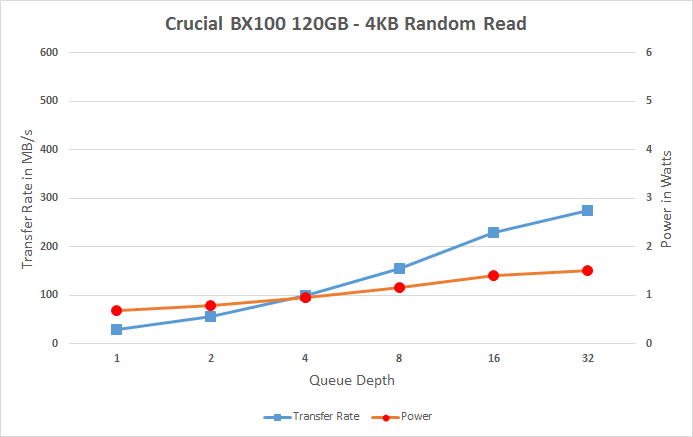 |
|||||||||
Since the SM2246EN is purely a client controller and fairly lightweight in general, it doesn't offer very aggressive scaling and tops out at 300MB/s, whereas many competing drives are able to achieve up to 400MB/s at the highest queue depths. Fortunately that's not relevant to client workloads, so the lack of high QD performance isn't that much of an issue.
Random Write Performance
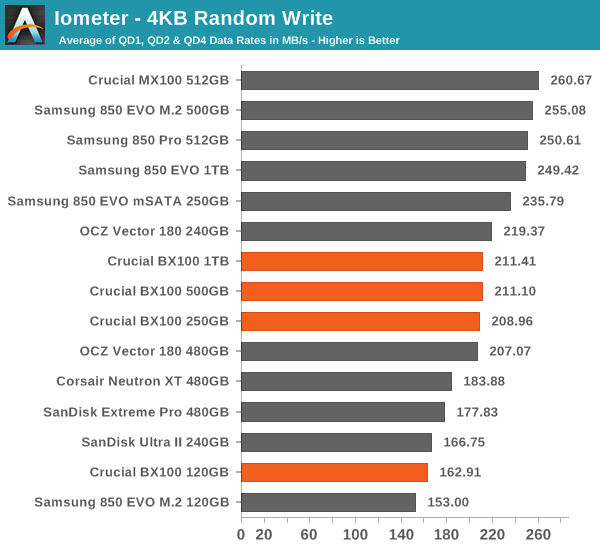
Random write performance is also average, but the power consumption is again excellent and it should be noted that the power draw doesn't increase substantially with higher capacities (but neither does performance).
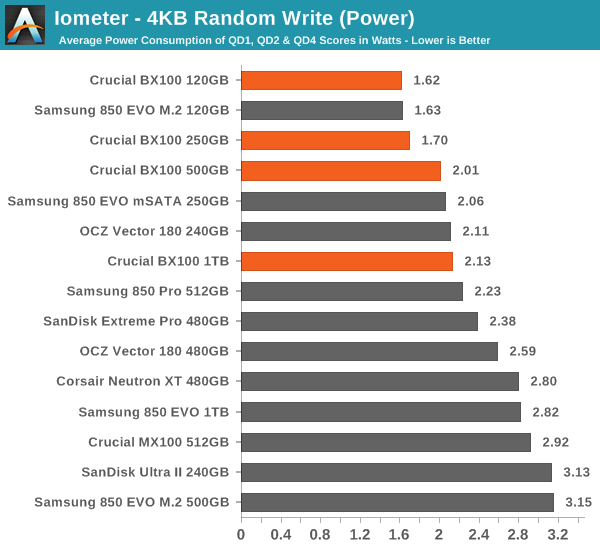
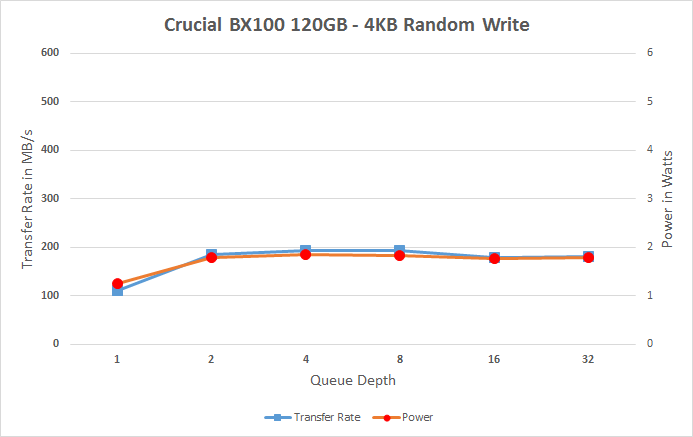 |
|||||||||
Performance scaling at higher queue depths isn't that impressive, but the BX100 does scale very well at low queue depths and the performance at QD1 is very good, which is ultimately the most important queue depth for client workloads.










67 Comments
View All Comments
SeanJ76 - Monday, April 27, 2015 - link
-and Crucial has the worst reliability record when it comes to SSD's, right next to OCZ, two of the worst SSD makers today.........that's why their so dirt cheap!MarkHunt - Sunday, May 3, 2015 - link
BX100 250GB running excellent on an old SATA 2 motherboard based C2D Hackintosh, the boot speed is incredible and applications such as Logic open with little lag, which used to happen with previous HDD. TRIM is also simple to enable with Clover bootloader.rogerdpack - Thursday, May 14, 2015 - link
unfortunately it appears the 120GB version has dramatically worse write performance, just a heads up, than its counterparts: http://ssd.userbenchmark.com/Compare/Crucial-BX100...kadajawi - Thursday, May 21, 2015 - link
Wait a minute. According to pretty much every other reviewer, news site etc. the power loss capacitors are missing from the BX100, yet Anandtech says they are there. What is it now? To me that's a pretty big deal, as I don't run my laptop with a battery and the power plug may occasionally slide out...LeonS - Monday, October 19, 2015 - link
Has anyone found a definitive answer for this yet? I have searched high and low, but cannot find an answer!sligett - Tuesday, June 16, 2015 - link
Are the idle power consumption labels switched for the BX100 250GB and 120GB?marvalsys - Monday, October 12, 2015 - link
Just spent way too much time trying to clone a 500GB WD hard disk with Windows 10 to a BX100 to use in a new Lenovo Flex 3 15". Clone went fine (booting from a True Image 2015 CD) but with cloned SSD installed laptop wouldn't boot / wouldn't even POST or allow booting from any other drive. Same exact clone to a Samsung 850 EVO worked flawlessly. Call to Crucial tech support resulted in rep saying that they have no current SSDs compatible with Flex 3 15 (even though their website lists 7, including the BX100). Seems to be some confusion - buyers beware!